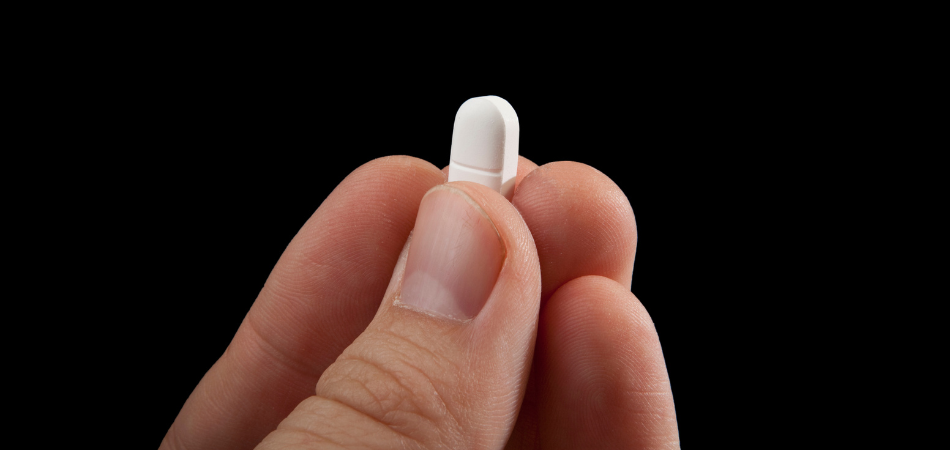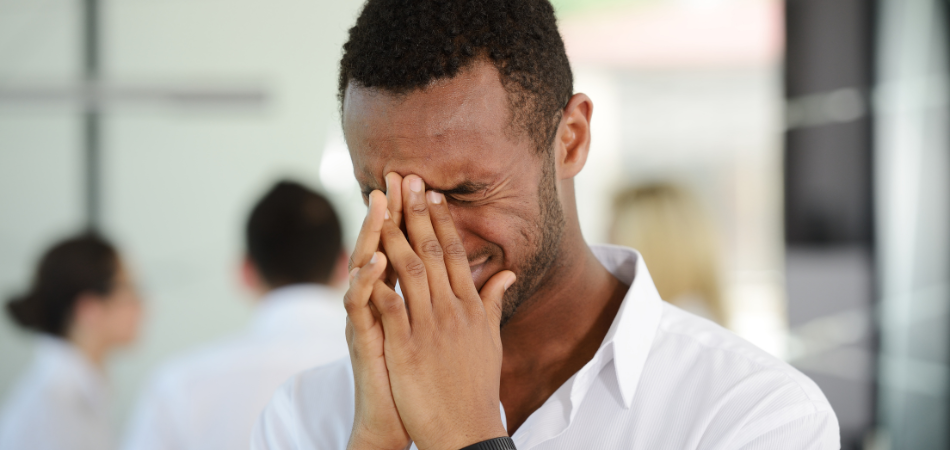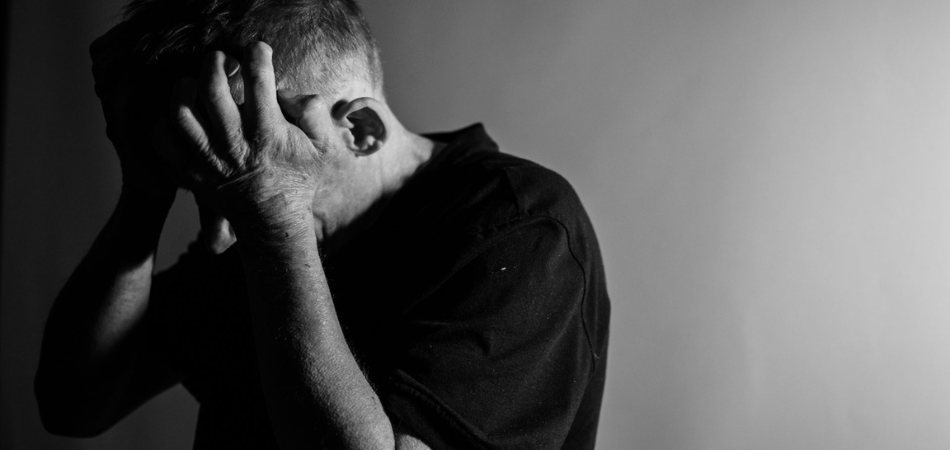
Written by:

Medically Reviewed by:
Last Updated:
February 17th, 2025
Vicodin Addiction
What is Vicodin?
Vicodin is a prescription painkiller that combines two main ingredients: hydrocodone, an opioid and paracetamol. This combination targets moderate to severe pain by both dulling the perception of pain through hydrocodone and enhancing pain relief through paracetamol.
While Vicodin is widely prescribed in places like the U.S., it’s not available in the UK. Instead, similar medications combining an opioid and paracetamol are prescribed under strict control due to hydrocodone being a Class A substance. This is due to its high potential for misuse and dependency.

What makes Vicodin addictive?
While the paracetamol in Vicodin isn’t addictive, the other key component, hydrocodone, is a powerful opioid that can easily lead to dependency. Hydrocodone affects the brain by binding to opioid receptors, particularly those involved in the reward and pain pathways.
When hydrocodone attaches to these receptors, it blocks pain signals, offering significant relief and causing a dopamine rush. This dopamine release can create a euphoria, encouraging the brain to seek that same feeling repeatedly.
Over time, the brain starts to rely on Vicodin to trigger this dopamine release, which can lead to tolerance and dependence. This combination of physical and psychological cravings often makes Vicodin highly addictive, even when taken as prescribed.
How can a Vicodin addiction form?
It can be confusing to understand how an addiction to Vicodin can take hold. Many people assume that as long as they follow their doctor’s instructions, dependency isn’t a risk. However, the reality is that numerous paths can lead to a Vicodin addiction, each one distinct but equally impactful.
Prescribed use that evolves into dependency
As we covered earlier, even when taken as directed, Vicodin can create a tolerance over time. This causes the body to need higher doses to achieve the same pain-relieving effects, and for some, this gradual increase can subtly lead to dependency. This can lead individuals to seek refills more often, and some might even start taking slightly more than recommended without realising it.
Using Vicodin for emotional relief
Beyond pain relief, Vicodin can create a sense of calm and relaxation, which may appeal to those dealing with emotional or psychological stress. Some people may begin using the drug not only for physical pain but also to manage feelings of anxiety, stress or sadness. This can quickly lead to psychological dependence, where the person feels they need Vicodin to cope with everyday life despite the risks.
Taking leftover pills
After an injury or surgery, some may keep leftover Vicodin pills “just in case” pain returns. It can feel harmless, especially since the pills were prescribed to them. However, using Vicodin without a current medical need can lead to dependency, especially if they start relying on it regularly to feel comfortable or relaxed.
Increasing dosage due to tolerance
Tolerance to Vicodin builds with regular use, meaning the initial prescribed dosage no longer has the same effect. Some people may increase their dosage on their own to maintain pain relief, unknowingly stepping into dangerous territory. This self-adjustment can quickly escalate as they find it challenging to manage pain or discomfort without increasing their intake.
Obtaining Vicodin through unauthorised means
When someone becomes reliant on Vicodin, they may go to lengths to maintain their access. This can include asking friends or family for extra pills or even seeking alternative sources to obtain the drug. Relying on unauthorised means often signals that dependence has set in and that professional support may be necessary to prevent the situation from worsening.
What are the signs of Vicodin addiction?
Recognising the signs of Vicodin addiction in yourself or a loved one is essential to seek help early. The sooner a problem is identified, the sooner help can be arranged, offering a better chance for recovery and minimising the damage addiction can cause.
Below are key indicators of Vicodin addiction.
Physical signs
- Drowsiness or fatigue: Consistently feeling sluggish, often nodding off even during conversations or at work.
- Constipation: Regular difficulties with bowel movements, which is common with opioid use.
- Constricted pupils: Noticeably small pupils, even in dim lighting.
- Frequent itching: A persistent need to scratch, as opioids often cause itching.
- Withdrawal symptoms: If someone skips a dose or tries to reduce their intake, they may experience withdrawal symptoms like muscle aches, sweating, nausea or irritability.
Behavioural signs
- Doctor shopping: Visiting multiple doctors to get new prescriptions or trying to refill prescriptions earlier than prescribed.
- Social withdrawal: Avoiding friends and family, often isolating oneself to avoid questions or judgement.
- Neglecting responsibilities: Ignoring personal or professional duties, such as skipping work or failing to complete tasks at home.
- Increased secrecy: Hiding pills, lying about usage or being vague about where they spend their time.
- Financial issues: Spending a significant amount of money on prescriptions or, in some cases, resorting to buying Vicodin illegally.
Psychological signs
- Anxiety or depression: Feeling on edge or low, especially when the effects of Vicodin wear off.
- Mood swings: Shifting quickly between emotions, often going from calm to irritable when they can’t access Vicodin.
- Preoccupation with the drug: Constant thoughts about the next dose, even if they try to distract themselves.
- Loss of control: Recognising that, despite efforts to cut back, they are unable to limit their intake.
- Denial or defensiveness: Becoming defensive if confronted about their usage or denying any problem with their consumption.
How can Liberty House help with a Vicodin addiction?
At Liberty House, we understand how hard it can be to face Vicodin addiction, especially when it’s something that may have started from a genuine need for pain relief. Our dedicated Vicodin addiction treatment programme is structured to provide you with a safe and compassionate environment as you work towards recovery.
With professional detox services, we help alleviate the physical strain of withdrawal under close medical monitored, ensuring that each step is manageable and supportive.
After detox, our programme extends into therapeutic care, where you can explore both traditional and holistic therapies, such as DBT, group counselling, art and yoga. Each of these therapies is designed to help you understand the roots of addiction and regain a sense of peace in daily life.
When you complete the Vicodin rehab programme, our aftercare services will be there to guide you so you don’t leave the programme without our support.
If you or a loved one is struggling with Vicodin dependency, please reach out to us at Liberty House. Support is here, and a healthier, happier future awaits.






